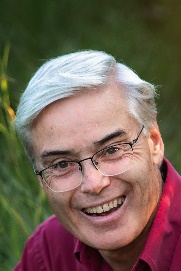
(This week is the 47th installment of the book, “The Band Director’s Lessons About Life”, which TCRN is publishing as a series during 2020. This week, band director and spiritual author Donald Lee relates a parable about changing what’s not working in our lives. For a complete listing of previous episodes in this series, click here.)
An error we refuse to correct has many lives. It takes courage to face one’s own shortcomings and wisdom to do something about them.
EDGAR CAYCE(Twentieth-century American clairvoyant)
“I just can’t play anything. Clarinet is such a frustrating instrument!”
Amelia was a good grade-eight student, so I was a little surprised. Although not too surprised. Learning to play a musical instrument has many frustrations.
“How is your reed, Amelia? Is it time for a new one?” I asked. Young players often use the same reed until there’s literally nothing left of it.
“I just put a new one on,” she said, “and it still won’t work!”
“Take off your mouthpiece and give me your clarinet,” I told her. I took the mouthpiece from my own clarinet and put it on Amelia’s clarinet. That’s the quickest way to find out if the problem is with the student (usually it is) or with the instrument. I played an open G, then started putting fingers down to see if all the notes played properly. After two fingers, nothing else worked.
“There’s clearly a problem with your instrument,” I said as I began looking at pads and springs for the leak. “It’s not you. That should be somewhat comforting . . . ah, there it is. This pad has come out altogether. That will make playing impossible.”
The pads cover the holes on the clarinet. If a pad comes out, air escapes through the hole, and any notes below that point on the instrument simply won’t play. The instrument becomes useless—at least until it’s fixed.
“You can play my clarinet for the rest of this rehearsal,” I told Amelia. “I’ll fix yours after school today.”
“Wow, is this ever easy to play!” Amelia exclaimed after trying a few notes.
All the notes worked. Amelia was amazed and delighted at how well she could now play.

A broken instrument is worse than useless. It’s better to have no instrument at all. At least then you don’t try what’s impossible and get pointlessly frustrated. So it was an opportune time to remind everyone.
“Listen, everyone. If you think something’s not working properly on your instrument, let me know right away. There’s nothing worse than trying to play a broken instrument. And remember, don’t let your dad try to fix it. Your dad has neither the tools nor the skills to fix a musical instrument. I have only a little of both. I can fix simple things. But for bigger problems, we will send the instrument to the repair shop.”
Sometimes in life, we miss the obvious: fix what’s broken.
Reflection
In this stage of reflection and redirection, we’re trying to envision a new “best self.” Are we trying to play a broken instrument? Do we need to fix something before we can start the next level of life’s performance cycle?
Sometimes we truly do need a professional repairman—a medical doctor, a physiotherapist, etc. But in the same way that I can fix many simple problems with musical instruments, many repairs to ourselves are in our own hands. We can fix our own thoughts, words, and actions. Remember the little poem from parable 13?
Sow a thought, reap an action.
Sow an action, reap a habit.
Sow a habit, reap a character.
Sow a character, reap a destiny.
This is how we create our music—create our lives. The only thing the poem leaves out is “words.” The process is: thoughts, words, actions, habits, character, destiny.
Do our thoughts spring from the Divine—the Holy Spirit that dwells within? Or are our thoughts too often consumed with petty jealousies, comparing ourselves to others, and blaming others? These thoughts are not worthy of our best self.
Do our words speak the Love that is our spiritual mission to express in the world? Or do they too often express criticism and complaint?
Do our actions truly create our highest and best self and build the kingdom of God in the world? Or do they cause division and discord?

Do our habits fulfill that old Vulcan blessing from Star Trek, “Live long and prosper”? Or do we habitually put destructive things into our bodies and minds? Are we habitually overdoing or underdoing: work, play, exercise, food, study, fresh air and sunshine, shopping, volunteering, giving? We always need to reflect on this because it’s tough to find the right balance in our lives.
How do we envision our character? Do our thoughts, words, actions, and habits all support that vision of our best character? If so, then our destiny will work itself out because it is simply the natural consequence of our thoughts, words, and deeds.
We are instruments of Divine Love. If something’s broken, that Love cannot resonate properly within us and without us. If we fix what’s broken, we’ll be amazed at how well our instrument works.
Let’s fix what’s broken—our thoughts, words, and deeds—so our instrument resonates with Divine Music.

Donald Lee is a spiritual author and speaker. This article is part of a weekly series for 2020 in which TCRN is publishing his inspirational book, The Band Director’s Lessons About Life: Volume 1 – 50 Parables on Life’s Performance Cycle, in serial form – one parable per week. You can learn more about the author at his website: www.ComingHomeSpirit.com, or order a copy of his complete book on Amazon, or get his free mini eBook and sign up for his weekly blog. Follow Donald on Facebook.

